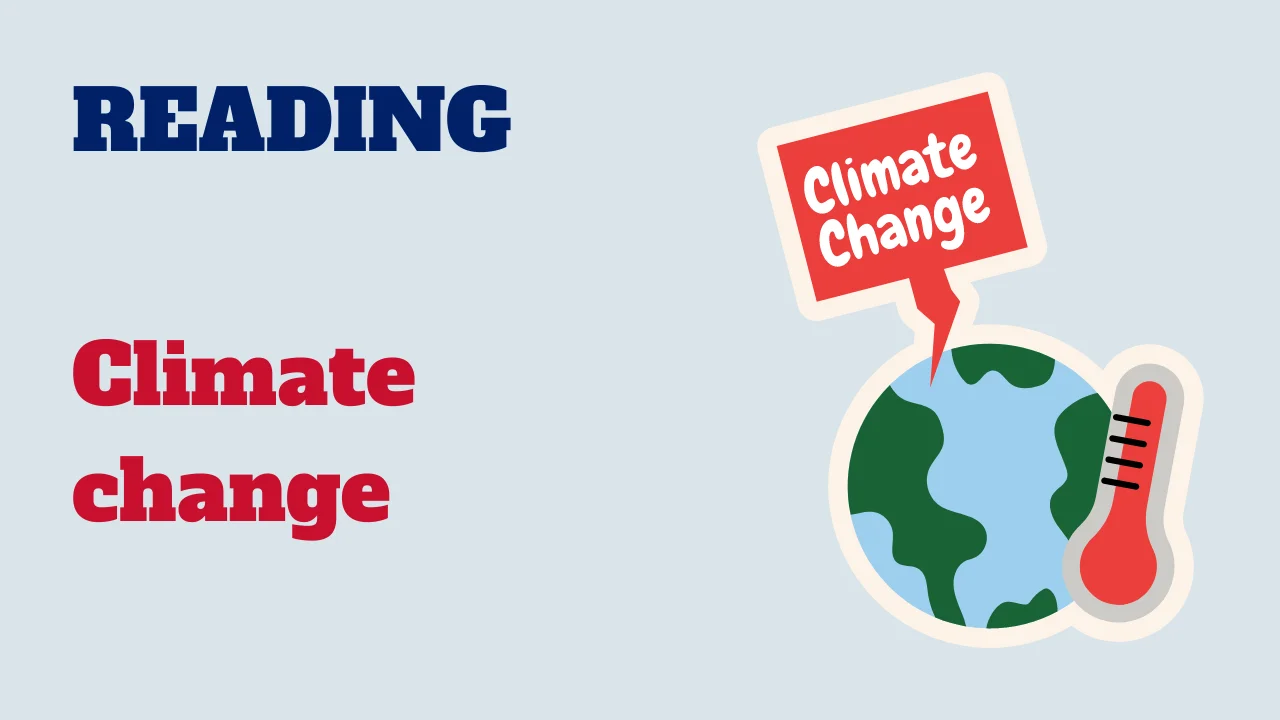Welcome to an insightful exploration of climate change! In this reading activity, we’ll delve into the causes, consequences, and solutions of this pressing global issue. Climate change refers to long-term shifts in temperatures and weather patterns, primarily driven by human activities.

Get ready to learn about the impact of climate change and what we can do to address it.
Text: Climate change
Climate change refers to significant and long-term changes in the Earth’s climate, primarily caused by human activities. The burning of fossil fuels like coal, oil, and natural gas releases large amounts of carbon dioxide (CO2) and other greenhouse gases into the atmosphere. These gases trap heat, leading to a warming effect known as the greenhouse effect. This has resulted in a steady increase in global temperatures, commonly referred to as global warming.
The impacts of climate change are widespread and profound. One of the most visible effects is the increase in extreme weather events. Hurricanes, droughts, floods, and heatwaves are becoming more frequent and severe, causing widespread destruction and loss of life. Rising temperatures also contribute to the melting of polar ice caps and glaciers, leading to sea-level rise that threatens coastal communities and ecosystems.
Climate change also affects ecosystems and biodiversity. Many species are unable to adapt to rapidly changing temperatures and shifting habitats, leading to a loss of biodiversity. Coral reefs, for example, are particularly vulnerable to ocean warming and acidification, resulting in widespread coral bleaching and the decline of these critical ecosystems.
Human health is also at risk due to climate change. Increased temperatures can exacerbate respiratory and cardiovascular diseases, while changes in weather patterns can spread vector-borne diseases like malaria and dengue fever to new regions. Additionally, food security is threatened as changing climate conditions affect crop yields and water availability, potentially leading to shortages and higher prices.
Addressing climate change requires urgent and coordinated global action. Mitigation strategies include reducing greenhouse gas emissions through the adoption of renewable energy sources, improving energy efficiency, and protecting and restoring forests. Adaptation strategies are equally important, focusing on enhancing resilience to climate impacts through infrastructure improvements, disaster preparedness, and sustainable land and water management practices.
Ultimately, combating climate change is a collective responsibility that necessitates international cooperation, innovative solutions, and a commitment to sustainable development. The choices made today will shape the future of our planet and the well-being of generations to come.
Comprehension questions
Congratulations on completing this exploration of climate change! By understanding the causes, consequences, and solutions of this global challenge, we are better equipped to take action and address it effectively. Remember, climate change requires urgent and concerted efforts from individuals, governments, and businesses worldwide. Let’s work together to create a sustainable and resilient future for generations to come.



